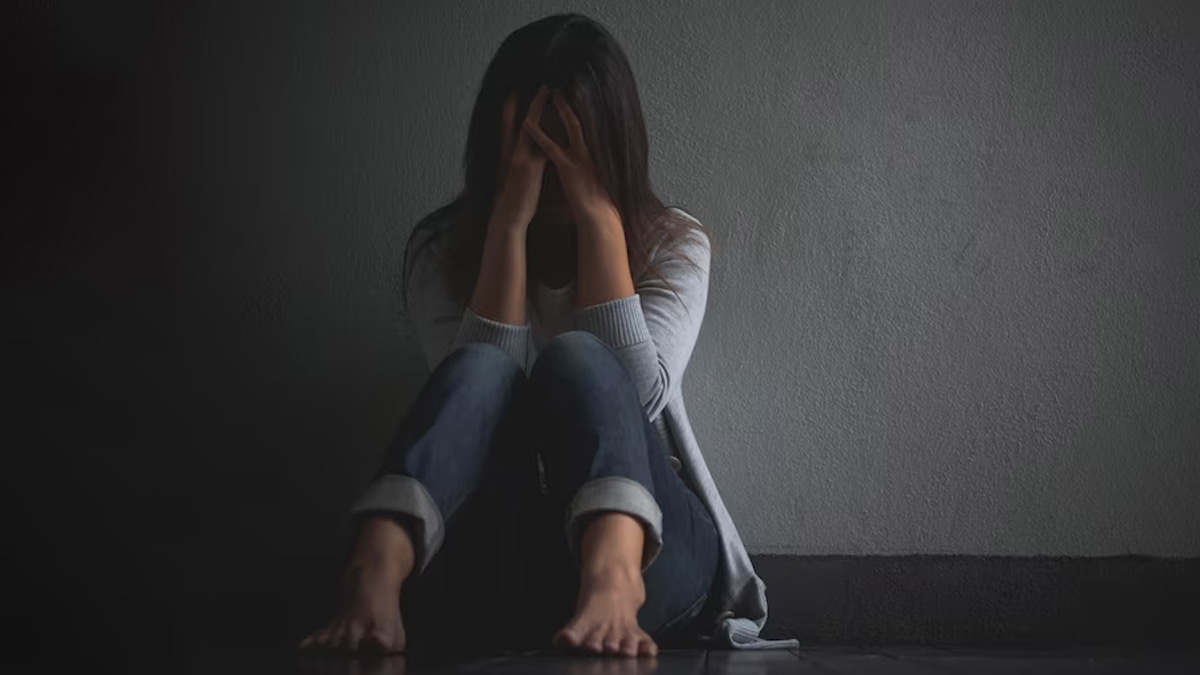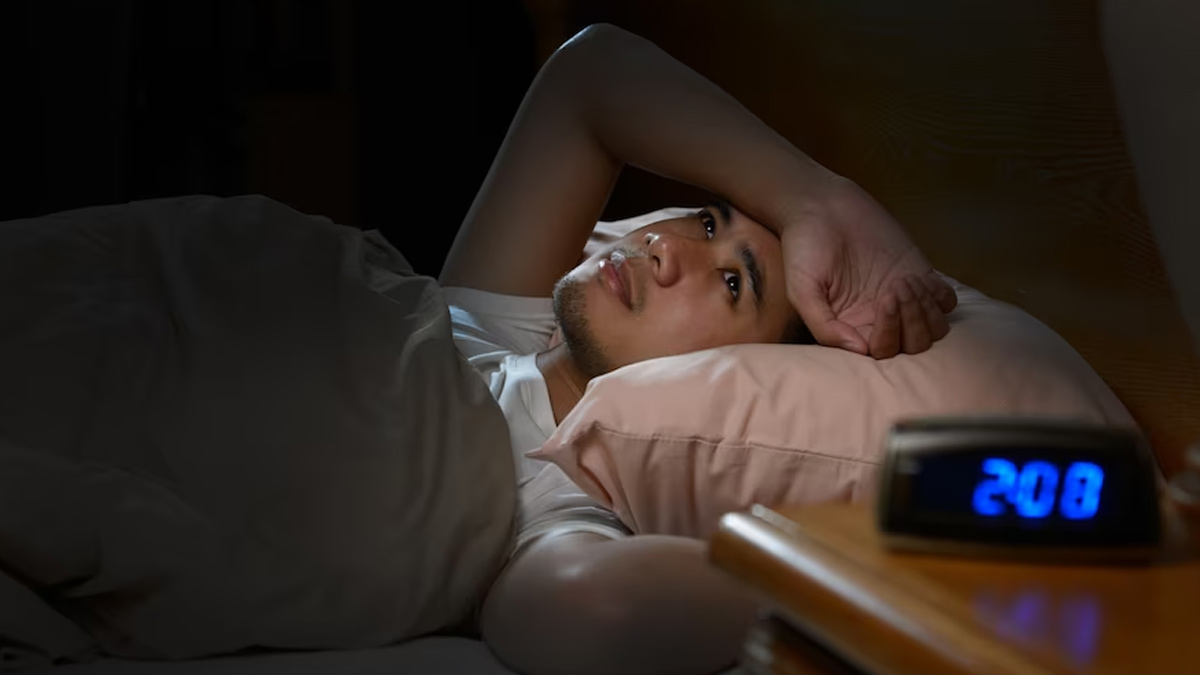

Post Traumatic Stress Disorder (PTSD) is an unfortunate consequence for people who have already undergone tragic situations in life. On top of that, PTSD further infiltrates all arenas of life and makes it increasingly tough for its victims to move on from their trauma. One such arena of life that seriously suffers due to PTSD, is the ability to attain quality sleep.
Subjective reports analysed by researchers at the Albert Einstein College of Medicine, New York, revealed that 70-91% of patients with PTSD have difficulty falling or staying asleep. Also, nightmares were reported by 19-71% of patients, depending on the severity of their PTSD and their exposure to physical aggression.
Understanding The Impact of PTSD on Sleep

PTSD is a mental health condition triggered by exposure to traumatic events such as accidents, violence, or combat. People with PTSD often experience symptoms like intrusive thoughts, heightened arousal, and emotional numbing. Speaking to the team of OnlyMyHealth, Dr Sayantani Mukherjee, Consultant Psychiatrist, Manipal Hospitals, Pune, informed, “Clinically speaking, PTSD can lead to nightmares, frequent sleep-walking, lack of deep sleep, and ultimately poor quality of sleep. As all these factors cause an incomplete sleep cycle. It means that the brain is not getting the rest it needs. This in turn affects a person’s focus, memory, and mood.”
Explaining in detail the impact of PTSD on quality sleep, Dr Mukherjee listed:
Nightmares and Flashbacks
One of the hallmark symptoms of PTSD is experiencing vivid nightmares and flashbacks related to the traumatic event. These distressing experiences can disrupt the sleep cycle, causing frequent awakenings during the night. As a result, individuals with PTSD may find it difficult to progress through the various sleep stages necessary for restorative sleep.
Also Read: Research Reveals Weekly Nightmares May Be Linked To Higher Dementia Risk
Hyperarousal
PTSD can lead to a state of hyperarousal, where individuals are constantly on high alert, and wish to be in control at all times. This heightened state of vigilance makes it challenging for them to relax and fall asleep. Sleep onset insomnia is common among those with PTSD, as they struggle to quiet their racing thoughts and calm their nervous systems.
Fragmented Sleep
The combination of nightmares, flashbacks, and hyperarousal can lead to fragmented sleep. Even if individuals with PTSD manage to fall asleep, they may wake up frequently throughout the night. This constant disruption prevents them from experiencing the deeper stages of sleep, leading to feelings of fatigue and grogginess during the day.
Avoidance Behaviours
Individuals with PTSD often develop avoidance behaviours, which can extend to sleep-related activities. They might avoid going to bed altogether, fearing the onset of nightmares or intrusive thoughts. Over time, this avoidance can create a negative association with sleep, further perpetuating sleep difficulties.
Mood Disorders and Sleep
PTSD is closely linked to mood disorders such as depression and anxiety. These conditions can exacerbate sleep problems, creating a vicious cycle. Sleep disturbances resulting from PTSD can contribute to the development of mood disorders, and in turn, mood disorders can worsen sleep problems, forming a never-ending loop.
Managing PTSD-Related Sleep Problems

Dr Mukherjee elucidated that PTSD-enabled lifestyle issues can be managed through an anticipatory approach. She advised that to fully recover from PTSD-related sleep issues, exploring and healing from the root cause of PTSD should have utmost priority.
“Firstly, we have to address the type of PTSD that someone is suffering from. It can be acute PTSD caused by mildly tragic events, or chronic, which is usually caused after extreme events like domestic violence, parental abuse, intense bullying, or facing combat. Once the cause is discovered, treatments and therapies can be explored accordingly. Hence the best way to deal with PTSD, and its impact on sleep, is to consult a mental health professional,” she said.
Also Read: Post Traumatic Stress Disorder Guide: 5 Ways To Cope With PTSD
However, as consequential disorders of PTSD, like the inability to achieve quality sleep can further exacerbate mental and physical health, Dr Mukherjee listed ways to escape from the loop of poor sleep health:
- Therapeutic Interventions: Psychotherapy, particularly Cognitive Behavioral Therapy for Insomnia (CBT-I), can be helpful in addressing the sleep disturbances caused by PTSD.
- Medication: In some cases, healthcare professionals might prescribe medications to manage symptoms such as nightmares and anxiety that contribute to sleep difficulties.
- Sleep Hygiene: Establishing a consistent sleep routine, creating a comfortable sleep environment, and avoiding stimulants like caffeine and digital screens before bedtime can contribute to improved sleep quality.
- Relaxation Techniques: Practices such as deep breathing, meditation, and progressive muscle relaxation can help reduce hyperarousal and promote relaxation before sleep.
Overcoming PTSD and Sleep Disorders
Quality sleep is essential for our physical, mental, and emotional well-being. It’s a time when our body and mind rejuvenate and recover from the challenges of the day. However, for individuals who suffer from PTSD, achieving restful sleep can be an ongoing struggle.
The effects of PTSD on quality sleep are profound and multi-faceted. Recognising the need to fix sleep disturbances as part of PTSD treatment is essential for helping individuals regain a sense of well-being and improving their overall quality of life. If you or someone you know is struggling with PTSD-related sleep problems, seeking professional help is a critical step toward achieving restful and rejuvenating sleep.
اكتشاف المزيد من ينبوع المعرفة
اشترك للحصول على أحدث التدوينات المرسلة إلى بريدك الإلكتروني.
